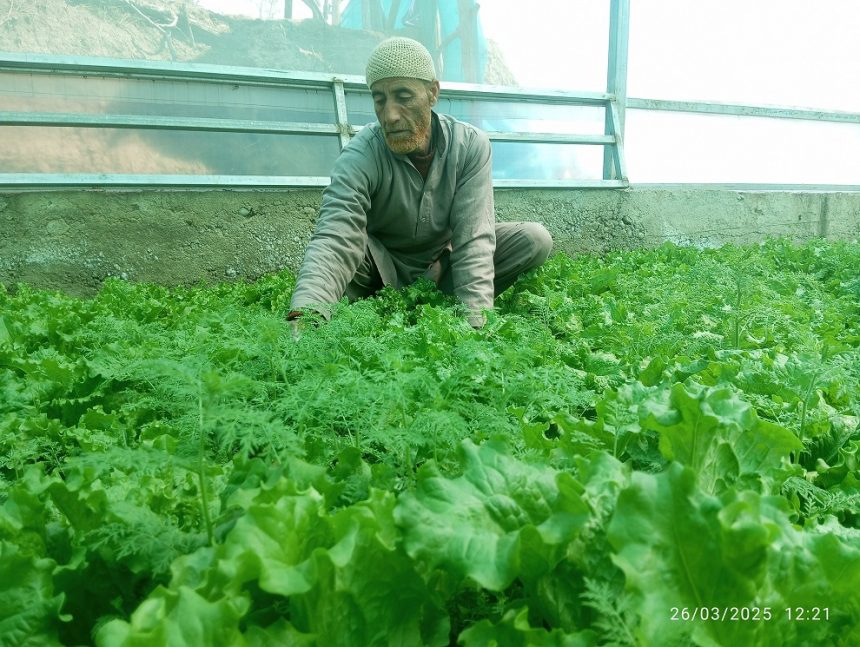Pulwama, Mar 26: Amidst the growing trend of apple cultivation, Farooq Ahmad Ganie, a progressive farmer from Tahab village in South Kashmir’s Pulwama district, has taken a different path—embracing exotic vegetable farming.
Speaking to Rising Kashmir, Farooq shared that his family had been engaged in traditional apple farming for the past 70 years. However, while many farmers in Tahab and nearby villages were converting their agricultural land into high-density apple orchards, he decided to go against the tide.
Determined to explore new opportunities, Farooq replaced a portion of his old apple orchard with high-value vegetable cultivation. He explained that apple orchards provide returns only once a year, leaving him struggling to manage expenses, including fertilizers, pesticides, and household needs.
“In search of a sustainable alternative, I approached the Agriculture Production and Farmers Welfare Department, where I was introduced to the idea of growing high-value exotic vegetables,” he said.
Eight years ago, Farooq converted six kanals of land into an exotic vegetable farm, and the decision has paid off immensely.
“I now earn consistent returns almost every month,” he said, adding that his success has earned him recognition as Pulwama’s “Exotic Vegetable Man.” With three playhouses, including two hi-tech ones, he has become a respected entrepreneur, spearheading the expansion of exotic vegetable farming across Kashmir.
His farm produces a variety of exotic vegetables, including broccoli, parsley, celery, bell peppers, lettuce, and seedless cucumber.
“Growing exotic vegetables is similar to cultivating traditional crops, but the returns are significantly higher,” he explained.
While traditional vegetables sell for ₹10-15 per kilogram, exotic vegetables fetch anywhere between ₹70-150 per kilogram, making them a lucrative option for farmers.
Having inspired many others to venture into high-value farming, Farooq encourages young people to take advantage of government schemes like HADP.
“Exotic vegetable farming has immense potential in Jammu and Kashmir. Young entrepreneurs can make a living in this field, helping address vegetable shortages while also generating employment opportunities,” he said.








